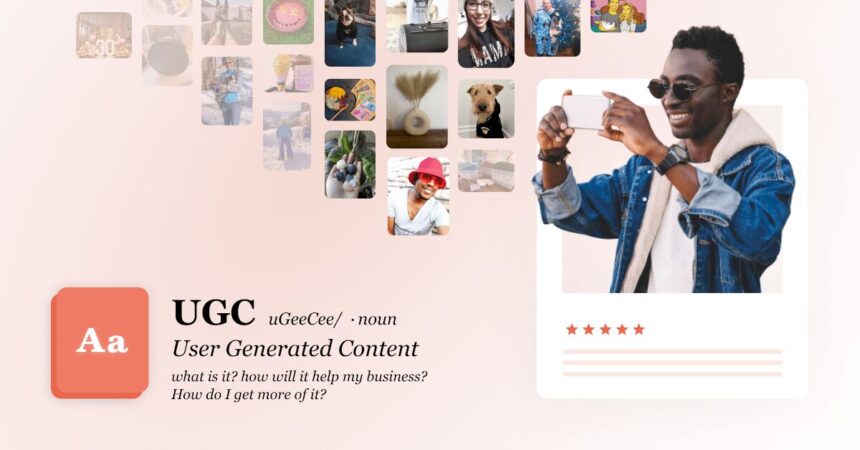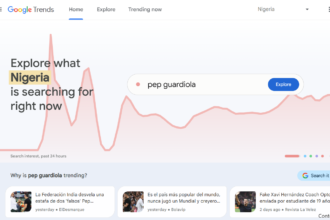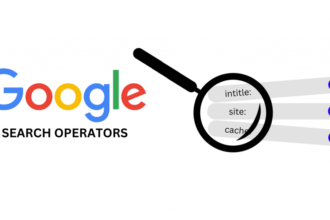The Power of User Generated Content for Nigerian Brands
In today’s digital world, Nigerian brands are finding new ways to connect with customers. One strong method is user-generated content, or UGC. This is content made by everyday people, like photos, videos, reviews, or social media posts about a brand. For Nigerian brands, UGC can build trust and grow business in a market where people value real stories. With over 38 million social media users in Nigeria, brands can use this to stand out. This post looks at the power of UGC for Nigerian brands, its benefits, examples, tips to encourage it, and challenges.
What is User-Generated Content?
User-generated content is any material created by users instead of the brand itself. It includes customer reviews on sites like Jumia, Instagram posts with a product tag, or videos sharing experiences with a service. In Nigeria, where social media is huge, UGC often appears on platforms like Instagram, Twitter, and TikTok. Brands do not pay for it directly, but it promotes them in a natural way. People trust UGC more because it feels honest, not like ads. Studies show 85 percent of consumers see UGC as more real than brand-made content. For Nigerian brands, this means tapping into local voices to make marketing feel close to home.
Benefits of UGC for Nigerian Brands
UGC brings many advantages to brands in Nigeria. It helps in a market where trust is key, and costs need to stay low.
- First, it builds authenticity and trust. Nigerians often doubt big ads, but seeing real people share positive stories changes that. For example, a skincare brand can gain from user photos showing results. Research says UGC is five times more likely to lead to sales than brand content.
- Second, it saves money. Creating ads costs a lot, but UGC is free or low-cost. Brands can repost user content instead of hiring teams. This fits Nigerian brands facing high production expenses.
- Third, it boosts engagement. When users create content, they interact more. Likes, shares, and comments grow. In Nigeria, with high social media use, this can make a brand go viral. About 93 percent of marketers agree UGC works better than other content.
- Fourth, it improves SEO. Search engines like Google favor fresh content. UGC adds keywords naturally, like “best Nigerian skincare” in reviews. This helps brands rank higher in searches for “user-generated content Nigerian brands.”
- Fifth, it strengthens community. UGC makes customers feel part of the brand. In Nigeria’s diverse culture, this can unite people around shared values, like local fashion or food.
- Lastly, it increases conversions. Shoppers spend hours on UGC daily, and it influences buys. Brands see up to 28 percent more engagement with UGC mixed in. For Nigerian brands, this means more sales from trusted voices.
Successful UGC Examples from Nigerian Brands
Many Nigerian brands have used UGC well. These cases show its power.
- GTBank ran the #GTBankFoodAndDrink campaign. During their food festival, they asked attendees to share photos and stories. Thousands posted, creating buzz. This built community and showed the bank’s fun side.
- Piggyvest, a savings app, uses UGC on social media. Users share success stories, like saving for a goal. The brand reposts these, building trust in finance. It helps in a market where people worry about money apps.
- Chicken Republic and Zikoko team up for fun content. They encourage quizzes and tweets about their food. Users create memes and stories, making the brand relatable. This boosts shares and foot traffic.
- Peak Milk’s “It’s In You” campaign asks users to share how the product fits their life. Photos and videos flood social media, linking the brand to daily Nigerian routines. It shows UGC can work for everyday items.
These examples prove UGC works for banks, tech, food, and more in Nigeria. Brands see growth in followers and loyalty.
How Nigerian Brands Can Encourage UGC
To get more UGC, brands need smart steps. Here are simple ways.
- Start with contests and challenges. Run a social media contest where users share content for prizes. For example, a fashion brand can ask for outfit photos with their items. Use hashtags like #MyBrandStyle to track entries.
- Encourage reviews and testimonials. Ask customers to leave feedback on your site or social pages. Feature the best ones to motivate others.
- Create branded hashtags. Make easy-to-use tags that fit Nigerian culture, like #NaijaEats for food brands. Share them in posts to spark use.
- Feature UGC on your channels. Repost user content with credit. This makes creators feel valued and encourages more.
- Work with influencers. Partner with local ones to create content. They can inspire followers to join in.
- Use social listening tools. Watch for mentions and engage quickly. Thank users and ask to share more.
- Host events. Like GTBank’s festival, events get people creating content on the spot.
These tips help Nigerian brands build a steady flow of UGC.
Related article: User-Generated Content: How to Turn Customers into Brand Advocates
Challenges of UGC for Brands in Nigeria and Solutions
UGC has upsides, but challenges exist in Nigeria.
- One issue is ethical concerns, like misleading content. Users might post false info, harming the brand. Solution: Check content before reposting and set clear rules.
- Legal problems, such as copyright, arise. Brands must get permission to use UGC. Solution: Always ask for consent and credit creators.
- Negative UGC can hurt reputation. Bad reviews spread fast. Solution: Respond kindly and fix issues to turn negatives positive.
- Limited resources for small brands. Not all can monitor UGC well. Solution: Use free tools like Google Alerts or start small.
- Monetization struggles for creators. Some expect pay, complicating things. Solution: Offer non-cash rewards like features or discounts.
By handling these, Nigerian brands can make UGC work safely.
Conclusion
User-generated content holds great power for Nigerian brands. It builds trust, saves costs, boosts engagement, and drives sales in a growing digital space. With examples like GTBank and Piggyvest, it’s clear UGC fits local markets. Brands should encourage it through contests and hashtags while tackling challenges head-on. Start using UGC today to connect better with customers. Share your thoughts in the comments—what UGC have you seen from Nigerian brands?
Image source: ecommercefastlane.com






